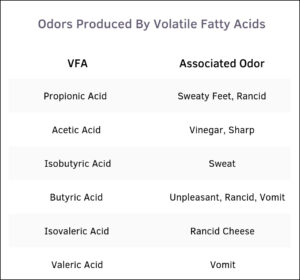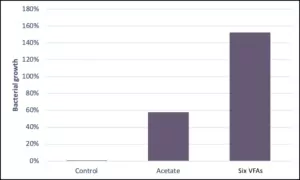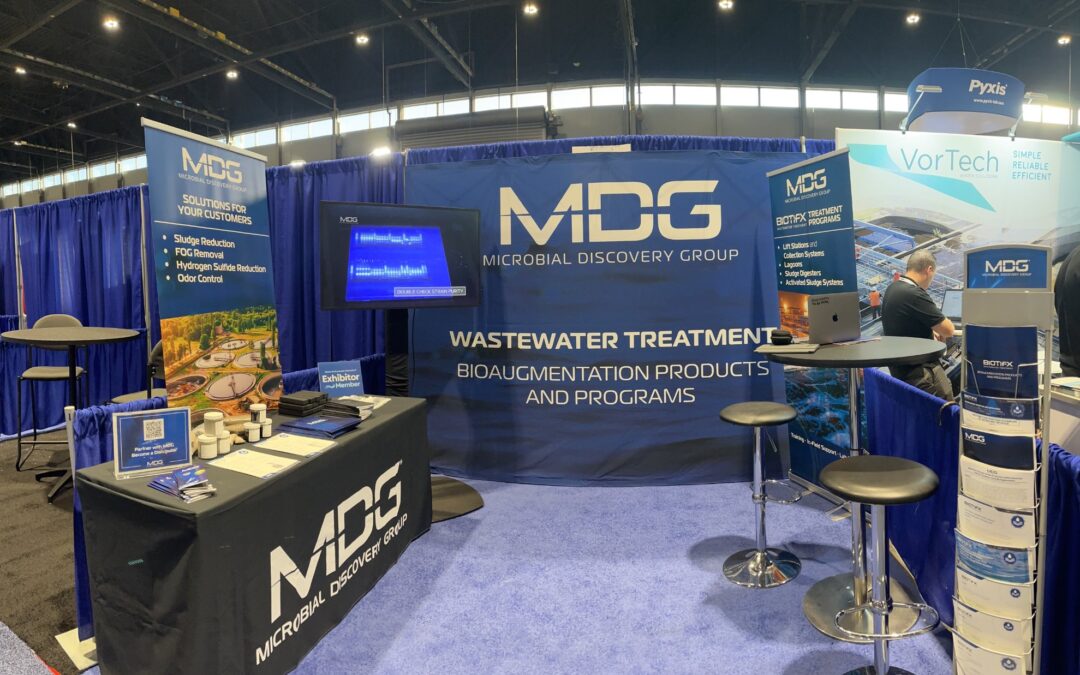If your customer is smelling the result of decomposing organic matter, such as feces, other bodily fluids, dairy, meat, or plant-based materials, chances are they’re smelling a Volatile Fatty Acid (VFA).
VFAs are organic acids produced by the microbial metabolism of biomass and food waste; such as dietary fiber, starch, protein, and amino acids. To beat these odors, certain strains of Bacillus have the ability to breakdown VFAs, thereby helping to reduce the problem at the source.
At Microbial Discovery Group (MDG) an in-vitro study was conducted to measure the growth of our Bacillus strains in the presence of VFAs. SporActiv® Foundation was grown in media containing acetate and a combination of common VFAs found in the I&I market; acetate, butyrate, propionate, valerate, isovalerate, and isobutyrate. These VFAs were chosen because of their known connection to unpleasant odors.
RESULTS
Figure 2. Increase in growth of SporActiv® Foundation grown in media containing acetate, or a combination of six VFAs.
The results show that growth of SporActiv® Foundation Bacillus increased by more than 50% when acetate was present, and by more than 100% when the six VFAs were present (Figure 2).
The addition of these VFAs allowed for increased Bacillus growth, indicating the VFAs were utilized by the Bacillus as an energy source. SporActiv® Bacillus will feed off of VFAs and help reduce odor associated with biomass and food waste.











